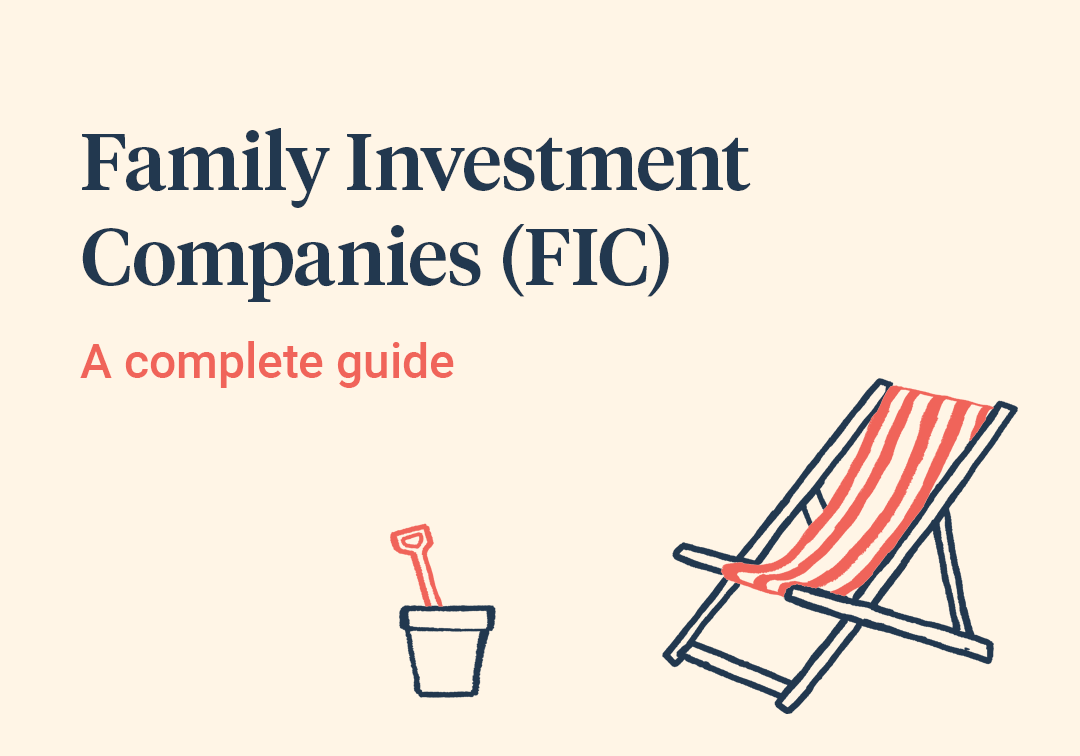We often talk about our own finances and how we can best structure our assets and our tax situations. After we’ve looked at ourselves, we might then consider our children and how we can plan for passing wealth on to them. It’s human nature to want to do the best we can to help our loved ones and, where grandchildren are concerned, to help them we may need plan way ahead.
What’s Love Futurology got to do with it?
About 8 years ago, I was at a financial planning conference and there was one talk that stood out above the rest. It wasn’t delivered by an investment house or an insurance company. It was in fact a short talk given by a ‘futurologist’. It was a fascinating insight into what, in all probability, our future is shaping up to look like, given the advances we are making in areas such as medicine and technology. There was one comment the speaker made that really made me stop and think:
“As you may know, due to advances in technology and medicine, we are all living longer.” he said. “It might also interest you to know that it’s very likely the first person to live to 130 has probably already been born. Let me just say that again, the first person to live to 130 has probably already been born”.
He followed this up with, “So, how will you stretch your client’s finances all the way out to age 130? How long do we think future generations will have to work for?” He then smiled as he looked upon all the financial advisers in the room pondering these questions.
How much do you need to retire and more…

How much income do you need to be comfortable, how much do you need invested and how to pay less tax...
Whether our children or grandchildren live to the fine old age of 130 remains to be seen, but the trend looking forward does seem to show that we will all be living longer, so planning to be financially stable for a lot longer definitely bears some thinking about, doesn’t it?
Let’s put this in perspective. Currently, the earliest you can take retirement benefits from a standard workplace or personal pension in the UK is at age 55, and this is due to go up to age 57 in 2028. [1]
Just take a minute, then, to imagine that you’re going to live to 130 – you work until age 55, you then stop work completely, and for the next 75 YEARS (!) you are retired. That’s a long time, right?
How does this relate to your current financial planning? Well, it may not be necessary for our generation to think about how we can make our pension pots last this long, but for our grandchildren this could be a real possibility. How, then, do we start to help them now, so that in their future, and in their children’s future, we can be satisfied that we’ve done everything possible to ensure they are financially secure?
A simple way to start thinking about this is to understand that for the first 18 years of their life, your grandchildren won’t usually be financially active, and in most cases shouldn’t be paying any tax. If you’re able to, these 18 years represent a golden opportunity to help kickstart their savings, by making use of those allowances that otherwise wouldn’t be used.
It’s likely that some of the solutions below will involve gifting to your grandchildren. We often have a natural fear of gifting as we immediately tend to think about HMRC coming after our estates for inheritance tax. Whilst there is a possibility that failed gifts may mean some inheritance tax needs to be paid on your estate, there’s nothing wrong with gifting and it shouldn’t be dismissed out of hand. For more information on gifting and gifting allowances, see my previous article here: https://www.saltus.co.uk/the-financial-planning-blog/to-gift-or-not-to-gift
Here are my top tips on how you could turbocharge your grandchild’s finances:
#1 – Max out their Junior ISAs
A junior individual savings account (JISA) is a tax-efficient savings account for children in which money can grow free of income or capital gains tax and can be withdrawn tax-free. This needs to be set up by the child’s parents or guardians with parental responsibility. Currently you can save a maximum of £9,000 per year into a JISA. You can open a simple cash JISA or a stocks and shares JISA and anyone can pay into them for a child.
A cash ISA will return a certain amount of interest over a set period (e.g.12 months) and this will be dictated by the individual bank or building society. Whilst savings in cash can be suitable for some, cash can lose its value over time because inflation may reduce its buying power. It’s important therefore to be aware of the current inflation rate compared to the interest rates offered by cash products.
As the name suggests, a stocks and shares JISA is a tax-free savings account that lets you put your money into a range of different investments, with a view to growing your money over time.
The child can access and control their JISA account from age 16 but cannot withdraw any funds until age 18, at which point the JISA automatically becomes an adult ISA and you can no longer pay into it for them, at least not directly. [2]
If your finances permit some level of contribution, this is an excellent way to boost their finances. To give you an idea, if the maximum of £9,000 per year were added to your grandchild’s stocks and shares JISA and it grew by just 2% per year (after accounting for inflation and charges), at age 18 the JISA might be worth a whopping £205,565. This could be enough to cover:
- Tuition fees and average student living costs for a 5 year degree in medicine studying at a UK University of £110,925 (average cost £22,185 per year). [3]
- The average first-time property buyer deposit in 2023 of £53,414 which represents circa 19% of the average property purchase price. [4]
- £10,000 to spend on a 2nd hand car.
And this scenario would still leave you with £31,226 to spare. You should remember that the capital would be at risk and the values could go down as well as up. The illustrated growth rate is based on a ‘Balanced’ attitude towards investment risk and your circumstances may vary.
Do you need help with inheritance tax planning?
Our team are well-versed in estate planning. Our advisers can guide you through the options to make the right decision for you and your family. Get in touch to discuss how we can help you.

#2 – Start up and pay into a pension for them now
Under current legislation even though a child may not earn any money you can still open a pension for them, and anyone can pay into this on their behalf. You are just limited to how much can be saved into it each year upon which tax relief can be claimed. With no earnings this is currently £2,880 net per annum which will then be grossed up to £3,600 after tax relief is added at no cost to you by the government. [5]
If contributions are started from birth and paid in every year, by age 18 the contributions alone would total £64,800, and, if we imagine again the investment grew at a rate of just 2% per year on average (after accounting for inflation and charges), by age 18 the pot might have a value of £82,226. If we further imagined that even when the grandchild started work, it was just the minimum amount of £3,600 that was being paid into the pension every year until age 55 (the maximum is currently £60,000), the pot could be worth £365,609 (assuming growth at the same rate).
#3 – Set up some premium bonds in their name
You can pay in a maximum of £50,000 per person into NS&I Premium Bonds and accounts can be set up in the name of the child. [6]
For children it will be the parent or guardian that manages the bonds until the child is 16, at which point they can take control.
All your money is secure with NS&I as it is part of the government. [7]
This contrasts with the standard safety net of £85,000 per person offered by high street banks through the FSCS (Financial Services Compensation Scheme). [8]
Premium bonds don’t pay an interest rate, instead each bond holder is entered into a monthly draw to win prizes and the bond numbers are generated by the NS&I’s random-number generator, ERNIE. Prizes are tax-free and can range from £25 to £1 million. In contrast to JISAs and pensions which are ringfenced investments and cannot be accessed by anyone else, Premium Bonds can offer flexibility. Parents can access the funds as and when needed on their child’s behalf, for example, to pay for medical or dentistry bills, or to fund school trips.
#4 – Pay into a Lifetime ISA (LISA) and help them to buy their first home
The first three tips above are investments that can be paid into from the moment your grandchild is born. If your grandchild is 18 or over, you might consider paying into a LISA for them, specifically if you wanted to help them to get onto the property ladder.
The Lifetime ISA can be opened by individuals if they are over 18 and under 40. A maximum of £4,000 per year can be paid into a LISA, which can be a cash or stocks and shares LISA, and the government will top this up with a 25% bonus up to a maximum of £1,000 per year. You can pay in a maximum of £4,000 per year up to the age of 50, and it is this £4,000 per year that counts towards the annual £20,000 per person ISA allowance. You can currently make withdrawals from your LISA if it is to buy your first property, you are over 60, or you are terminally ill and have been given less than 12 months to live.
LISA owners can withdraw money when they come to buy their first home provided the property costs £450,000 or less, it is purchased no sooner than 12 months after the first payment is made into the LISA, a solicitor or conveyancer is used to work on your behalf when buying the property, and you are purchasing the property with a mortgage.
It is possible to withdraw funds at any other time, but if for any other reasons than listed above, these are known as ‘unauthorised withdrawals’ and you will need to pay a 25% withdrawal charge. [9]
#5 – Educate your grandchildren about money
Education about money is probably one of the best gifts you can give the younger generations. It doesn’t have to be strict or heavy handed, nor do you need to fill them with dread that if they don’t save money, they may become destitute! Rather, educate them on the benefits of saving for a rainy day. Help them to understand what is reasonable and sensible with regards to how much of their money they spend and on what. Teach them that if they are given a certain amount of money per week or per month, that they will need to budget, and that (key message) once it’s gone, it’s gone! Teach them also the value of reward in exchange for service and that money is earned, not given. All of the above when delivered from a good place will only serve to strengthen their financial knowledge and help build good, lifelong financial habits. Not only will it benefit them, but they may just pass this knowledge on to their children too.
The government’s free and impartial service Money Helper provides a useful resource on how to teach kids about money. [10]
Do you need help with inheritance tax planning?
Our team are well-versed in estate planning. Our advisers can guide you through the options to make the right decision for you and your family. Get in touch to discuss how we can help you.

Article sources
Editorial policy
All authors have considerable industry expertise and specific knowledge on any given topic. All pieces are reviewed by an additional qualified financial specialist to ensure objectivity and accuracy to the best of our ability. All reviewer’s qualifications are from leading industry bodies. Where possible we use primary sources to support our work. These can include white papers, government sources and data, original reports and interviews or articles from other industry experts. We also reference research from other reputable financial planning and investment management firms where appropriate.
Saltus Financial Planning Ltd is authorised and regulated by the Financial Conduct Authority. Information is correct to the best of our understanding as at the date of publication. Nothing within this content is intended as, or can be relied upon, as financial advice. Capital is at risk. You may get back less than you invested. Tax rules may change and the value of tax reliefs depends on your individual circumstances.
About Saltus?
Find out more about our award-winning wealth management services…
Winner
Best Wealth Manager
Winner
Investment Performance: Cautious Portfolios
Winner
Top 100 Fund Selectors 2024
Winner
Best Places to Work 2024
£8bn+
assets under advice
20
years working with clients
350+
employees
97%
client retention rate



